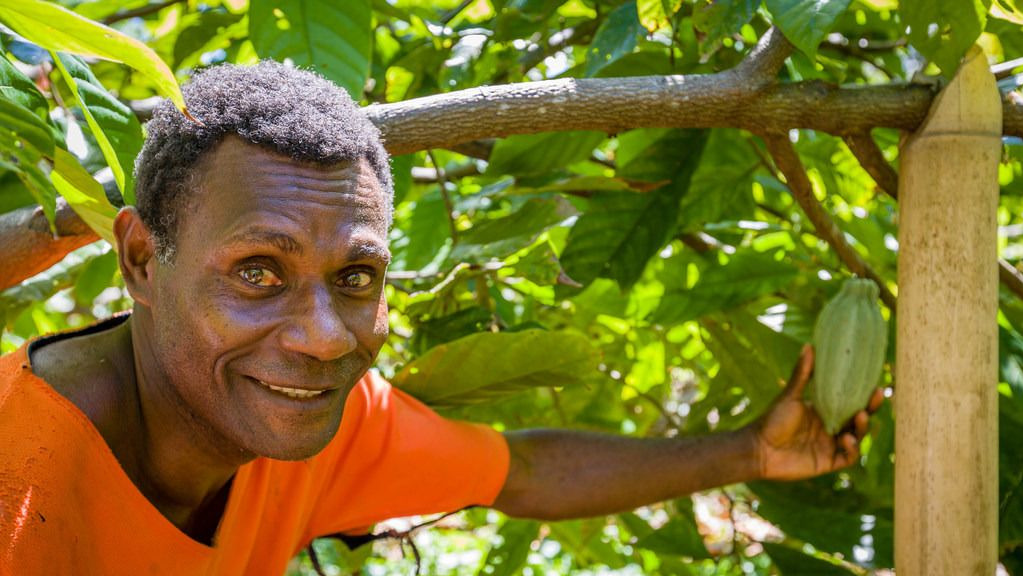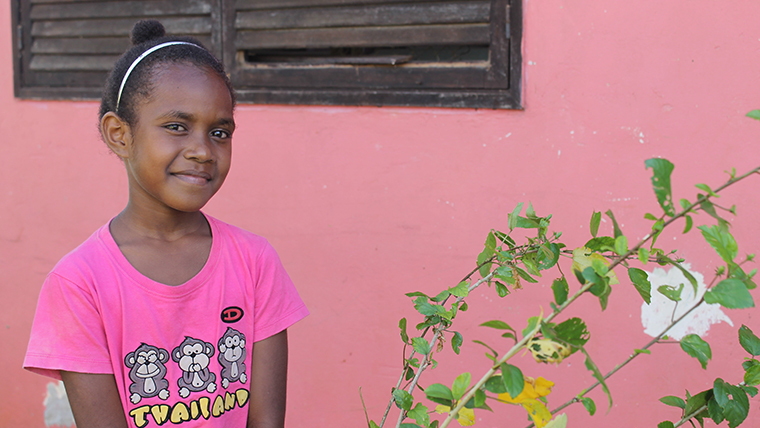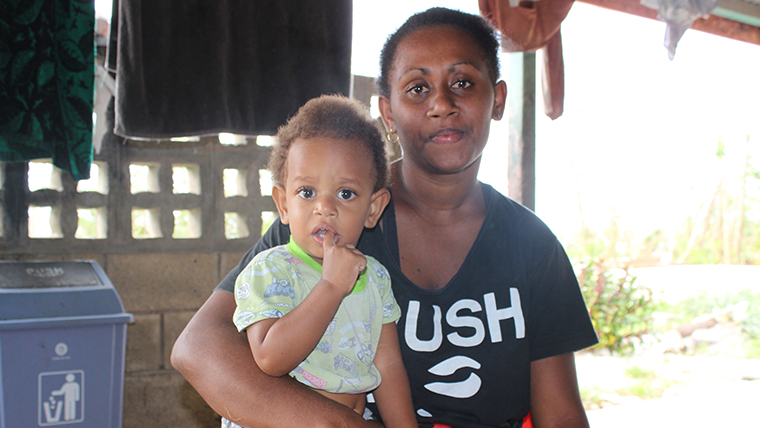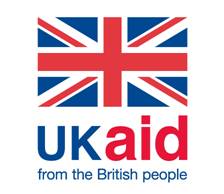Cyclone Pam Update
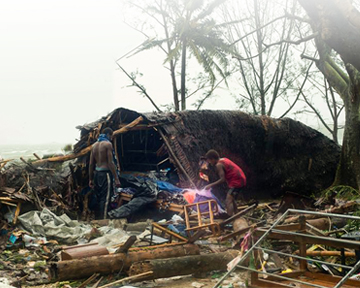
On 13 March 2015 Cyclone Pam swept through the Pacific island nation of Vanuatu flattening almost everything in its path and leaving thousands of children and families struggling for survival.
Cyclone Pam was one of the worst storms to hit Vanuatu and surrounding islands in recent memory. Most families in the region live in simple, thatched-roof homes which are vulnerable to severe weather. Survivors returned to homes that were damaged or even destroyed, as well as dealing with devastated crops.
Please share this video with your family and friends using the icons below
What we did to help
World Vision was among the first agencies to respond to the emergency and deployed staff from around the world to help support the 80-strong team in Vanuatu.
With more than 30 years experience in Vanuatu and local staff based throughout the country, we could pre-warn communities about Cyclone Pam’s arrival. The Disaster Risk Reduction skills training that we gave throughout 2014, enabled communities to prepare for Pam's arrival by mapping threats, planning evacuations, and using valuable search and rescue skills. Additionally, we’d already pre-positioned relief items, including tarpaulins and blankets, as well as hygiene, shelter and kitchen kits in Port Vila and Santo. As soon as the cyclone had hit, we gave these relief items out to 800 people who were affected.
With your support, we reached more than 62,000 people in some of the most remote and isolated communities. We provided families with water, food, cooking equipment, soap, tooth brushes, baby items, livelihood and health support and gave assistance to schools.
We were the first relief organisation to reach Tanna island immediately after the cyclone with some basic food supplies and water. According to scientists from Tropical Storm Risk, Tanna faced gusts of up to 260 kilometres per hour, killing five people and destroying 90 per cent of buildings.
Cyclone Pam showed us some of the worst of Mother Nature, but she also brought out some of the best of human nature. I have been inspired by the resilience of the people of Vanuatu – their steadfast determination, their wholehearted joyfulness in the midst of very challenging times. World Vision remains committed to partnering with government and communities during the recovery period, in supporting the people of Vanuatu to build a better Vanuatu for the future, with sustained improvements in the lives of children and communities.
- Michael Wolfe - Country Director, World Vision Vanuatu
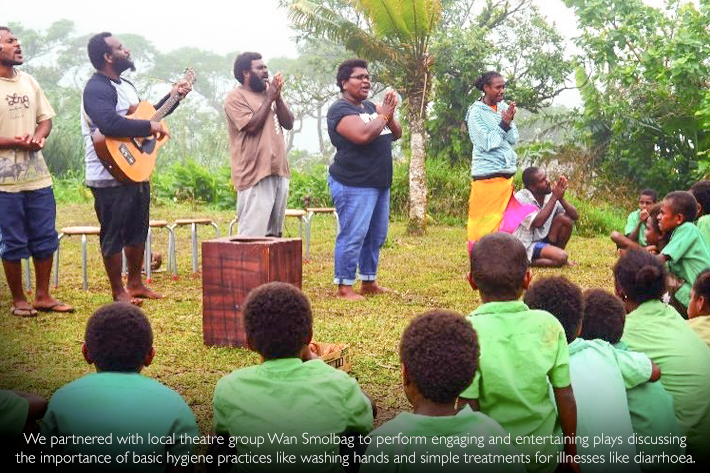
Photo credit: Katharina Witkowski/World Vision
See how you helped communities recover in the wake of the cyclone. And how you've helped families’ be more resilient in the most disaster-prone country in the world.
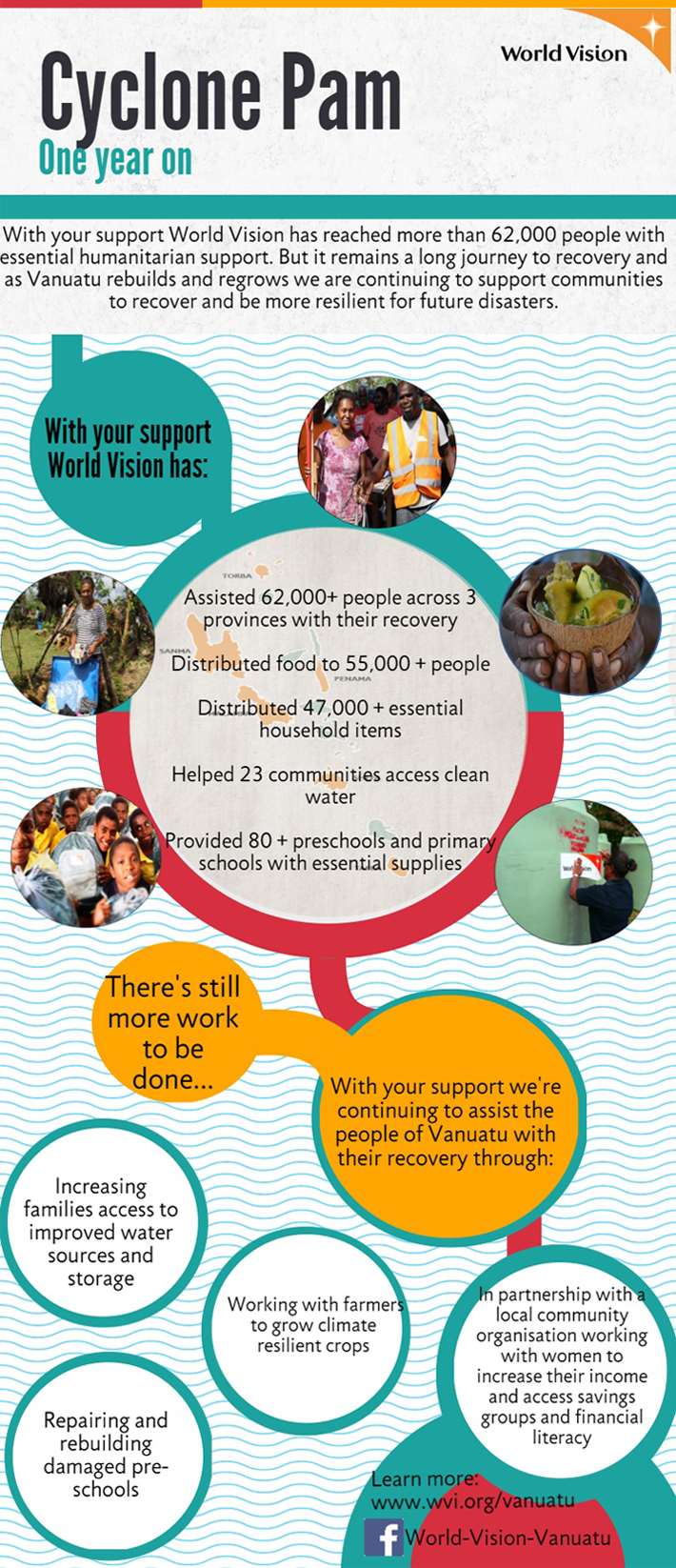
Here are just some of the ways your donations have helped:
- In partnership with Wan Smobag, providing nutritionally balanced lunches to 3500 people in Port Vila communities.
- Installing seed nurseries at five Port Vila schools, providing materials and water tanks, allowing the schools to grow their own vegetable plants from seeds and provide healthy food to school children.
- In partnership with Wan Smolbag, conducting plays in health and sanitation, disaster preparedness and disability rights in 22 schools in Sanma, reaching local people and 1,600 students.
- The addition of 10,000L water catchment tanks to nine community kitchens in Erromango - reaching 2650 people, as well as the addition of three 10,000L water tanks to improve rain-water harvesting in Tanna.
- In partnership with ACTIV, working with women in Port Vila to earn an income from coconuts and virgin coconut oil produced to a high quality; following this, establishing savings groups and providing financial literacy training.
- Constructing three kindergartens - one in Efate and two in Ambrym - using the Build Back Better approach, allowing 86 children to access pre-school services.
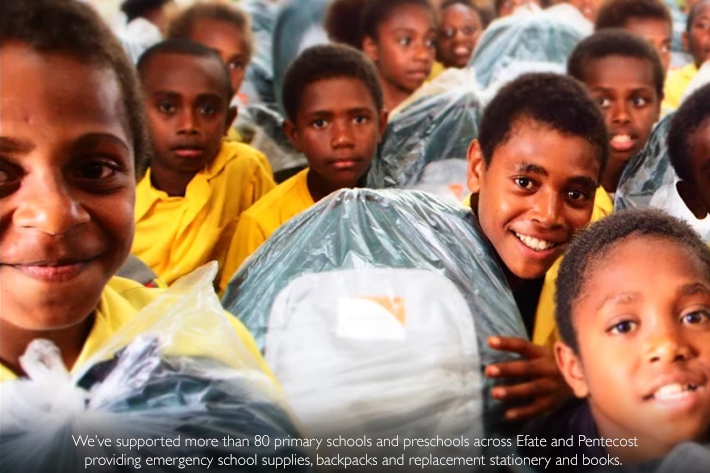
Highlights:
- Partnering with UNICEF, WHO and Vanuatu's Ministry of Health on Tanna island to immunise more than 6,000 children under five years old against measles. Immunisations help to reduce the spread of disease in the post-cyclone, more cramped, less sanitary living conditions. We've also given out deworming and vitamin tablets, to help protect the cyclone's smallest and most vulnerable survivors.
- We led a national radio campaign, with the Ministry of Health, promoting breastfeeding, handwashing and eating healthy, nutritious food. The healthy food message has also been made into a television advertisement.
- Supporting community garden groups with seeds, tools and small business agricultural training to help families restore their crops and livelihoods.
- Helping women. In crisis situations domestic violence often increases. Vanuatu already has one of the highest rates of domestic violence in the world (60 per cent). During the immediate response phase, with the support of the UK Government (DFID), World Vision partnered with the Vanuatu Women's Centre to run a three day training workshop for 25 faith leaders and community leaders, to raise awareness of the increased vulnerability of women and girls to abuse after a disaster and ways of dealing with it. These influential leaders were empowered to speak out against gender-based violence and recognise its prevalence in their communities. They’ve raised awareness among 2,700 people on issues regarding the protection of women and girls after a disaster.
- In addition, we helped 17,028 people of all ages with essential household items such as kitchen kits, hygiene kits, household tools and tarpaulins.
What happens next?
Recovery for the communities of Vanuatu remains a long journey, with the majority of infrastructure (including schools and health clinics) yet to be rebuilt. As one of the longest serving NGOs in Vanuatu, we’re committed to supporting the Government and people of Vanuatu over this recovery period and beyond.
Before Cyclone Pam, we had been running projects on water, hygiene and sanitation, and raising awareness of gender-based violence. These projects are continuing with new work in livelihoods and disaster risk reduction. For example, we've been repairing water systems damaged by the cyclone through existing water, hygiene and sanitation projects. Our work includes “build back better” training, an approach that encourages communities to not only recover from the most recent disaster, but to do so in a way that will help them be less vulnerable to disasters in the future.
Our holistic approach to community development and disaster management means long-term support and empowerment for communities in Vanuatu which will continue.
Stories and blogs
Thank you
You helped us raise more than £98,679 for people affected by Cyclone Pam.
